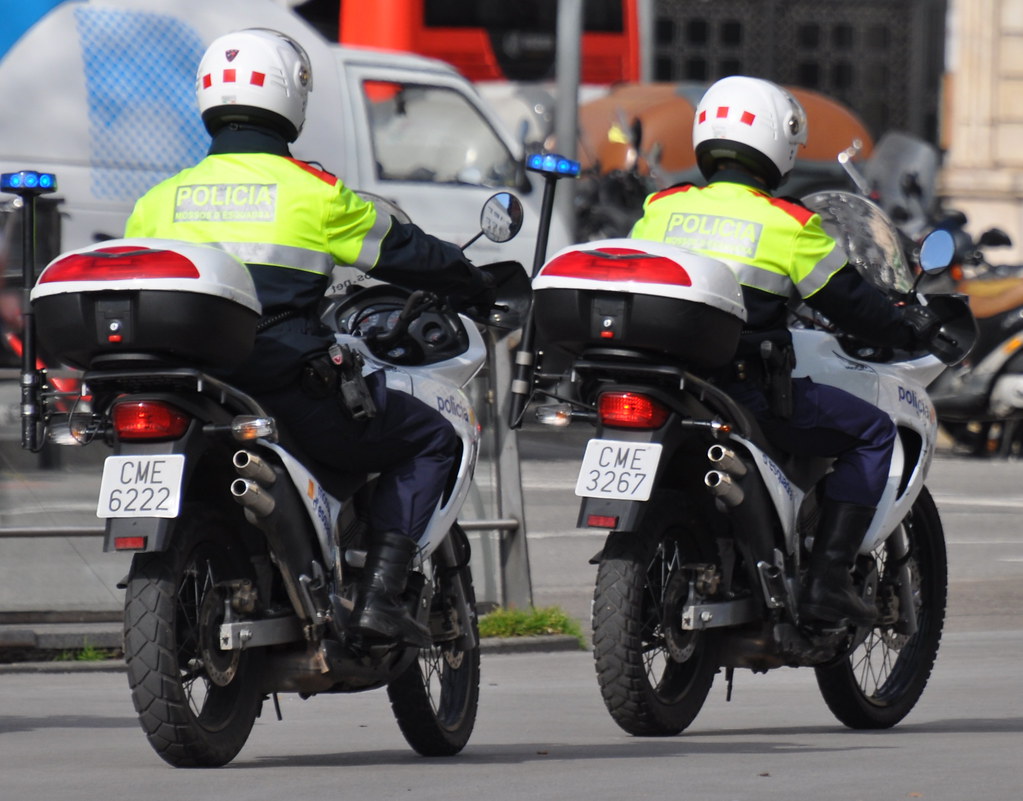
The neutrality of regional police
The Pompaelo Association, in collaboration with Civismo, organised a roundtable in Pamplona on the necessary neutrality in any regional police department to ensure the rights of both policemen and citizens. The main panelist, Corporal Inma Alcolea, has been the victim of organised persecution within the Mossos d’Esquadra (Catalonia’s regional police force) because of defending her rights and constitutional views. «We are defenceless,» she stressed, citing as an example the history of retaliation that she has been subjected to within this police force. A systematic harassment from the leadership of her organisation that has taken her to court, where she has already won the first trials.
«The Mossos Directorate, and especially its Internal Affairs Division, has been treating the behaviours of its personnel in a completely different way depending on the ideology they defend,» she explained. Thus, according to the agent, a behaviour that can entail to have a case open against one and a suspension of employment and salary for a constitutionalist ends up in a drawer in the case of a separatist. And actions that, «with the manual in hand», are much more serious, are «punished» with transfers and increases in wages, as happened with the bodyguard of Carles Puigdemont (former president of Catalonia).
«Spanish institutions, and the parties that have run them, have abandoned the Catalans»
Inma Alcolea
This discrimination, in her opinion, is based on the discretion enjoyed by political leaders in an organisation with an enormous percentage of interim commanders; and therefore, subject to the whim of their superiors. “This also occurs in promotion procedures, which include evidence such as an oral interview without witnesses or any record on which one could substantiate a claim later on. And this extends to many other areas of the Catalan Administration”, she denounced.
This is a dynamic that has flourished because «there is no effective counterweight.» In this sense, Alcolea regretted that national institutions, and the parties that have directed them, have «abandoned» Catalan citizens in the hands of nationalists in exchange for the separatists’ vote in Congress. For this reason, the only thing remaining is the Justice Deparment, which, in her words, is subject to increasing pressures: «As a result, any glimpse of the neutrality required from the institutions, both by the Constitution and by the Catalan Statute itself, is missing».
Alcolea’s testimony made her deserve, in the opinion of the president of Civismo, Julio Pomés, the qualification of «heroine and living example in the fight for freedom.» But this mosso d’esquadra, as she confirmed herself, wants to leave Catalonia: “The personal and professional cost, the permanent emotional pressure are such that I prefer to leave behind my work and my home, as so many have done before me and will continue to do”. A decision that highlights how, also there, the regional public Administration fails, as it has not implemented a 2015 law that establishes that the members of the regional police may go to the National Police.
Alcolea’s story illustrates a larger problem, in the eyes of Miguel Cornejo, president of Pompaelo. Namely, a legal framework that allows those who pressure the corporal to continue doing so. «The excess of positions of ‘trust’ or of ‘free appointment’ makes merit and capacity be subordinated to political affiliation, an effect that is aggravated with the abuse of interim positions, as occurs in the Navarrese Regional Police (Policía Foral). When this practice reaches the Ministry of Justice or the Ministry of Interior, we will face a very serious problem: that the people who have to enforce the law, who have to guarantee a framework of coexistence in which we all feel protected, are no longer impartial. And then we will have a serious problem of freedom,» she said. A freedom that, as Pomés concluded, has to be defended by the «free people» who value it, against «those who want to impose their ideas».